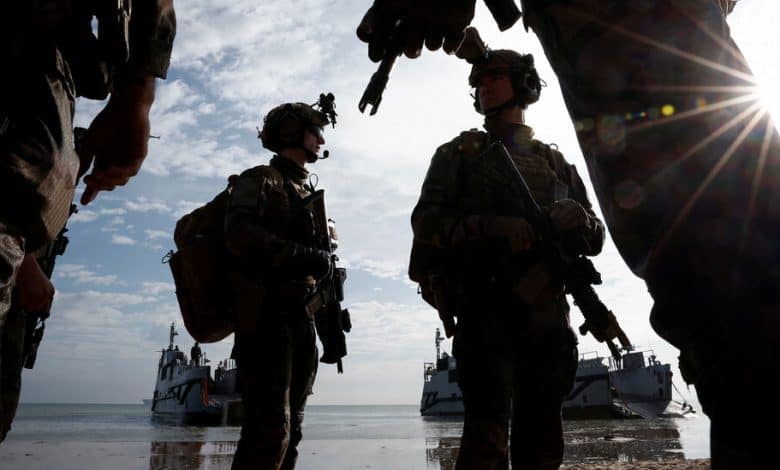This D-Day, Europe Needs to Resolve to Get Its Act Together

Thursday’s D-Day anniversary — the 80th — is occasioning somber and anxious reflections about the fate of the Atlantic alliance. Somber because the last of the Greatest Generation will soon no longer be with us. Anxious because Donald Trump, and his evident disdain for that alliance, may soon be with us again.
The anxiety is partly misplaced. Trump’s truculent brand of American nationalism is a terrible idea for many reasons, not least in the encouragement it gives to Vladimir Putin and Xi Jinping to target weaker American allies. But Trump is also the messenger of a warning Europeans desperately need to heed.
In a nutshell: Shape up.
Europe today faces four great challenges that typically determine the fate of great powers. Take a brief look:
Growth and dynamism:In 1960 the E.U. 28 — the 27 countries currently in the European Union, plus Britain — accounted for 36.3 percent of global gross domestic product. By 2020 it had fallen to 22.4 percent. By the end of the century it is projected to fall to just under 10 percent. By contrast, the United States has maintained a roughly consistent share — around a quarter — of global G.D.P. since the Kennedy administration.
Think of any leading-edge industry — artificial intelligence, microchips, software, robotics, genomics — and ask yourself (with a few honorable exceptions), where’s the European Microsoft, Nvidia or OpenAI?
Military power:When the Cold War ended in 1990, the West German military fielded more than 500,000 troops and spent 2.5 percent of its G.D.P. on defense. As of last year, it was down to 181,000 troops and 1.57 percent. Britain’s Royal Navy, the most powerful in the world at the outset of World War II, can now deploy just 10 submarines and fewer than two dozen major surface warships, some of which are inactive.
In an all-out war, the British would exhaust their defense capabilities in about two months, according to a report to the House of Commons defense committee. The same would likely be true — if not much sooner — for every E.U. member-state apart from Poland, which aims to spend as much as 5 percent of its G.D.P. on defense next year.
